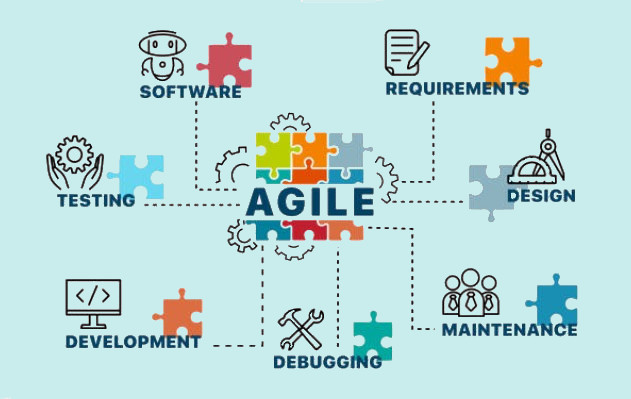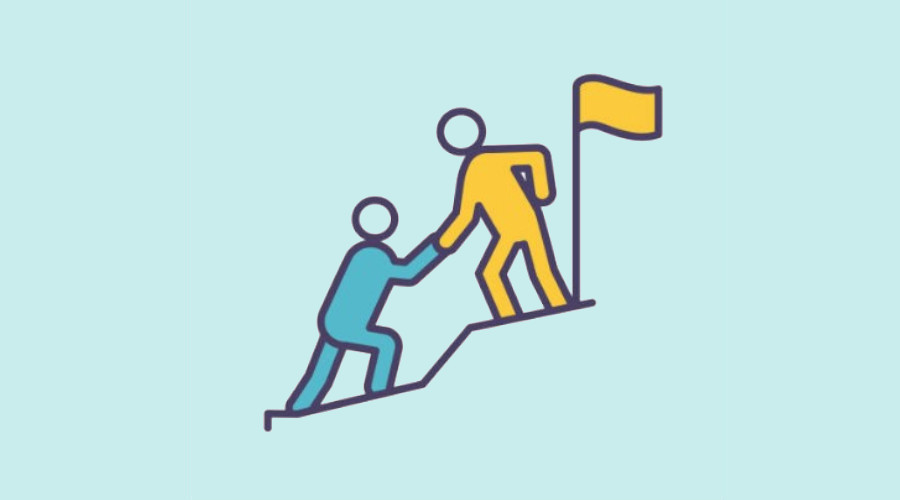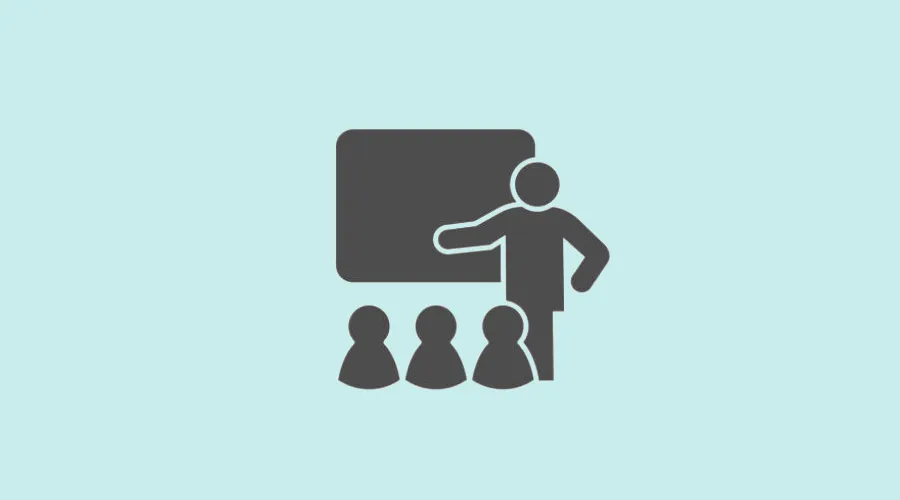Trainer, consultant, mentor, facilitator, the agile coach takes on many different roles for the companies in which he or she works. And yet this profession is still unknown to a large part of the population.
So what is an agile coach? What are their skills and missions? Find out in this guide.
What is the Agile method?
Traditionally, the agile approach was used for project management in the field of IT and software development. However, today, this method is applicable to all types of companies, whether in the tech industry or not, due to its high effectiveness.
The reason for its popularity is that it contrasts with the Waterfall model, which requires delivering all project deliverables at the end. In contrast, the agile model is based on iteration, meaning that deliveries are made as the project progresses.
The goal is to gain flexibility, adaptability, and responsiveness to meet the client’s needs more closely.
To achieve these objectives, agile projects are based on the 12 principles of the Agile Manifesto and four core values. Here are these values:
- Team: The idea is to leverage teamwork and collective intelligence.
- Working Software: This represents the practical, operational aspect in its purest form. Teams should take action (even if it means making mistakes) instead of relying on extensive documentation.
- Collaboration: To meet client expectations, greater collaboration is needed rather than establishing a hierarchical relationship based on a contract.
- Change: While having an initial plan can be beneficial for an overall vision, it’s important to be adaptable in the face of changes.
Today, the agile method comes in various methodologies, such as Scrum, Kanban, SAFe, Lean Management, and more. To implement these different approaches, companies often require an agile coach (also known as a Scrum Master or Product Owner).

What is an agile coach?
The agile coach accompanies the transformation of companies, at organizational, managerial and human levels. In other words, they are agents of change.
What skills does an agile coach need?
The role of an agile coach involves bringing about organizational, managerial, and human changes, requiring a diverse set of skills.
Firstly, as a professional coach, agility is primarily about transforming teams and the organization intrinsically. Therefore, an agile coach should possess qualities of leadership, pedagogy, active listening, and training, among others.
Secondly, as an expert in agile methodologies, they must have a deep understanding of agile methods and tools, such as iterative development (or sprints), continuous improvement, Kanban, Scrum, and more. Additionally, they need to be responsive and highly adaptable.
Lastly, the agile coach should have a good grasp of the specific industry or sector they operate in. For example, if they work with a SaaS company, they should be familiar with developer roles, frameworks, etc.
Conversely, if they work with a large financial institution, they should understand the sector’s terminology.
In summary, an agile coach is a versatile professional who masters both technical aspects and the intricacies of agile coaching.
What are the agile coach's missions?
The goal of an agile coach is to assist companies in transitioning towards agility, and they must guide these organizations through the process of change.
However, it’s important to note that not all companies have the same objectives. The missions of an agile coach can involve improving productivity, performance, communication, team cohesion, and more.
Regardless of the mission, the agile coach must first define the objectives with the client and assess the current situation:
1. What are the issues faced by the organization? These could relate to organization, processes, management, etc.
2. Who are the key stakeholders?
3. What areas need improvement?
4. What are the obstacles?
After assessing the situation, the coach develops an action plan to help the company achieve its goals.
Often, they need to work at both the organizational and individual levels. This means they can interact with all employees through workshops, events, training sessions, etc. They can also work with individuals, such as helping a project manager embrace agile practices.
As a facilitator of agile transformation, the coach’s role is temporary (lasting a few weeks or months). By the end of their intervention, the company should be able to autonomously practice agile management. Only at this point can the mission of the agile coach be considered fully successful.

Why become an agile coach?
The agile coach helps companies become agile and achieve their goals. Beyond just the organization, agile management also benefits all employees. It’s a highly rewarding profession that allows individuals to assist both companies and individuals in achieving greater success.
What is the average salary of an agile coach?
Due to their versatility and the value they bring to companies, agile coaches can enjoy a very comfortable income. In the early stages of their career, it’s possible to earn around €5,000 per month (approximately €60,000 annually). With experience, the salary of an agile coach can exceed €8,000 per month, which equates to over €100,000 annually.
What training do you need to become an Agile Coach?
While it is possible to undergo training to become an agile coach, it is primarily experience that allows individuals to enter this profession.
That said, agile coaches often hold a master’s degree, ideally in fields like business, engineering, computer science, or management.
Additionally, complementary training programs, such as those offered by Datascientest, can help acquire essential knowledge for the role of an agile coach.










